Solicita ahora para formar parte de nuestra próxima grupo de Becados en Ciencia científicos comunitarios y líderes comunitarios.
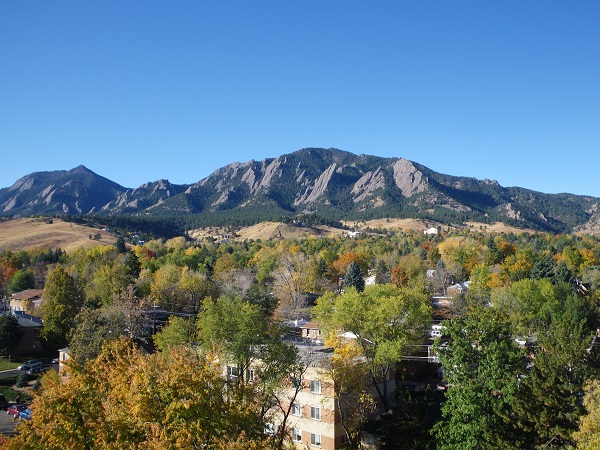
Image courtesy of Wikimedia commons
Over 60 people from across all city departments attended the first two workshops. The early workshops featured presentations and conversation with leading climate change scientists and climate adaptation experts including:
The interactive pieces of the workshop focused on honing climate change messaging, learning about efforts underway in various departments to prepare for climate change, exploring approaches from other cities, and brainstorming cross-departmental emissions reduction and climate adaptation approaches in Boulder. One outcome of the workshop is a common benchmark to plan against – over 95% of workshop attendees felt comfortable using a 2-6 degree Farenheit average temperature change by 2050 as their planning guide and where able to understand how that average change, and the implications for variability in any given year, translated into specific local impacts. Future workshops will drill down into adaptation and mitigation strategies that departments can use to help meet the city’s climate and resilience goals.
Boulder’s climate change action plan has three complementary goals: prepare for changes that are already coming, prevent climate change from getting more severe, and ensure that all residents, especially those residents with the fewest resources, are protected the negative impacts of climate change. To be successful, climate adaption, equity, and mitigation have to be part of the mission of all city departments– not just the usual suspects like sustainability and environmental affairs.
Boulder leaders are designing and implementing a series of workshops that build a shared commitment to climate change preparation and resilience. The interactive workshops bring together people from every city department to interact with scientists and climate professionals. Together they consider the local impacts of climate change, develop a shared understanding of the range and impacts of future changes, and explore how each individual department can prepare for those impacts. The workshops also promise to develop new collaborative approaches where multiple city departments work together on sector specific issues that they all impact (e.g. climate impacts on forestry). However, it could also branch out to coordinating with city residents to develop joint approaches with multiple benefits. For example, in other cities, Health and Human Services and the Parks Department have launched evening events that bring people out of their homes and into cooler parks on hot evenings. Not only does it help residents cope with heat, it builds social connectedness.
TEX staff are part of the team that planned these workshops, and TEX and Boulder plan to work together to share the workshop template with other communities. Boulder is contributing to TEX for this work, and TEX will use that funding to support work with communities who have less financial resources.
La ciudad de Boulder creó un póster para compartir los objetivos y resultados de su colaboración TEX en la Reunión de Otoño AGU 2016. Haga clic aquí para descargar el póster.
Desarrollar la capacidad de adaptación de las ciudades al cambio climático: estudio de caso en Boulder (Colorado)
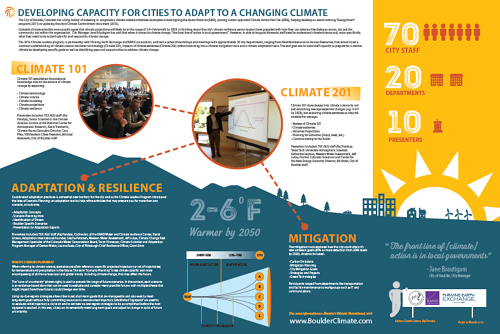 La ciudad de Boulder, en Colorado, ha emprendido numerosas iniciativas progresistas relacionadas con el clima, desde la firma del Protocolo de Kioto hasta la aprobación de un Impuesto de Acción Climática. Pero cuando la ciudad se preparaba para lanzar su documento de Compromiso Climático y liderar un proceso comunitario, se dio cuenta de que un grupo crítico que no había participado plenamente en el proceso era su propio personal. Quedó claro que, para que se produjera un cambio organizativo y la ciudad alcanzara sus objetivos, el personal debía comprender mejor la importancia de los objetivos climáticos y aprender a utilizarlos para orientar su planificación a largo plazo.
La ciudad de Boulder, en Colorado, ha emprendido numerosas iniciativas progresistas relacionadas con el clima, desde la firma del Protocolo de Kioto hasta la aprobación de un Impuesto de Acción Climática. Pero cuando la ciudad se preparaba para lanzar su documento de Compromiso Climático y liderar un proceso comunitario, se dio cuenta de que un grupo crítico que no había participado plenamente en el proceso era su propio personal. Quedó claro que, para que se produjera un cambio organizativo y la ciudad alcanzara sus objetivos, el personal debía comprender mejor la importancia de los objetivos climáticos y aprender a utilizarlos para orientar su planificación a largo plazo.
A principios de 2016, la ciudad puso en marcha la iniciativa "Líderes climáticos", de un año de duración, que consistió en una serie de talleres que reunieron a más de 70 miembros del personal con científicos del clima y expertos en planificación de la adaptación al clima. Los dos primeros talleres, denominados Clima 101 y 201, revisaron la mejor información científica disponible sobre las amenazas climáticas y sus posibles efectos, y trabajaron con los participantes para comprender cómo los cambios climáticos podrían afectar a diversas funciones de la ciudad. Estos talleres interactivos también exploraron formas de ayudar al personal de la ciudad a sentirse cómodo preparándose para un clima significativamente diferente y debatieron formas de comunicar esta información al público.
A partir de ahí, el grupo se dividió en dos grupos. Una vía de "mitigación" se centró en las formas en que Boulder podría cumplir sus agresivos objetivos de reducción de emisiones. El de "adaptación" elaboró escenarios integrados para la planificación de toda la ciudad con el fin de poner de relieve la vulnerabilidad de Boulder al cambio climático y orientar la planificación de la adaptación.
Reunir estas dos conversaciones está ayudando al personal de la ciudad a explorar los vínculos críticos entre la mitigación y la adaptación, desarrollar mensajes comunes para conseguir el apoyo de la comunidad a la acción climática e informar sobre la planificación integral de la resiliencia climática.
Describiremos cómo Boulder se asoció con éxito con científicos y expertos en planificación para programar un año de talleres interactivos con el fin de incorporar a diversos empleados de la ciudad al proceso de acción climática. Compartiremos los resultados del desarrollo de la evaluación integrada de la vulnerabilidad a los escenarios climáticos y la planificación de la adaptación. Por último, compartiremos las principales lecciones aprendidas que serán valiosas para otras ciudades y jurisdicciones que emprendan acciones climáticas similares.
 MaryAnn Nason is the City of Boulder Water Conservation and Outreach Coordinator. MaryAnn manages programs including water conservation, flood safety, stormwater pollution prevention and other water related outreach programs (wastewater, water treatment, etc.). She holds a B.A. from the University of Colorado in Environmental Studies.
MaryAnn Nason is the City of Boulder Water Conservation and Outreach Coordinator. MaryAnn manages programs including water conservation, flood safety, stormwater pollution prevention and other water related outreach programs (wastewater, water treatment, etc.). She holds a B.A. from the University of Colorado in Environmental Studies.
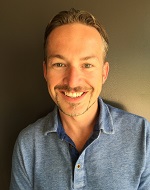 Russ Sands is the City of Boulder Watershed Sustainability & Outreach Supervisor. Russ currently manages a team of 6 Public Works/Utilities staff and is charge of the Water Conservation, Stormwater Quality and Utility Outreach Programs for Public Works/Utilities. The latter has not only includes flood and drought outreach efforts but increasingly focuses on building interdepartmental connections that seek to leverage and support larger city and community goals around climate, resilience and sustainability. He holds a B.S in Environmental Science from Metropolitan State University of Denver.
Russ Sands is the City of Boulder Watershed Sustainability & Outreach Supervisor. Russ currently manages a team of 6 Public Works/Utilities staff and is charge of the Water Conservation, Stormwater Quality and Utility Outreach Programs for Public Works/Utilities. The latter has not only includes flood and drought outreach efforts but increasingly focuses on building interdepartmental connections that seek to leverage and support larger city and community goals around climate, resilience and sustainability. He holds a B.S in Environmental Science from Metropolitan State University of Denver.
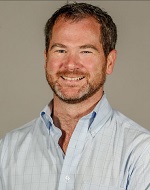 Greg Guibert is Boulder’s first Chief Resilience Officer. Prior to his appointment, Greg worked at the National Center for Atmospheric Research (NCAR) as a risk and development project specialist to develop and manage innovative projects that address complex social and environmental challenges at the intersection of science, policy, and practice. Greg holds a Master’s of Urban and Environmental Planning from the University of Virginia and a Bachelor’s degree in Geography from Vassar College in New York.
Greg Guibert is Boulder’s first Chief Resilience Officer. Prior to his appointment, Greg worked at the National Center for Atmospheric Research (NCAR) as a risk and development project specialist to develop and manage innovative projects that address complex social and environmental challenges at the intersection of science, policy, and practice. Greg holds a Master’s of Urban and Environmental Planning from the University of Virginia and a Bachelor’s degree in Geography from Vassar College in New York.
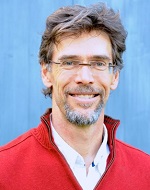
Brett KenCairn is the City of Boulder’s Senior Environment and Climate Planner. He has worked throughout the western US in community-based natural resource management and sustainable development. As Senior Environment and Climate Planner for the City of Boulder, Brett is responsible for coordinating the development of the community climate action plan and the city organization climate change preparation strategy and participates as a team member on the city’s clean energy development team.
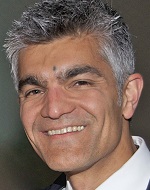
Dr. Rajul (Raj) Pandya is the director of AGU’s Thriving Earth Exchange. Prior to working with AGU, Raj worked as the Director of Education and Outreach at the National Center for Atmospheric Research. Raj has been lucky enough to lead internships and mentor students, teach in college and high school, do research with communities internationally and in the US, and work on digital libraries. He has published in areas including thunderstorms, student learning, workforce development, diversity in science, citizen-science, and public health.
(c) 2024 Thriving Earth Exchange